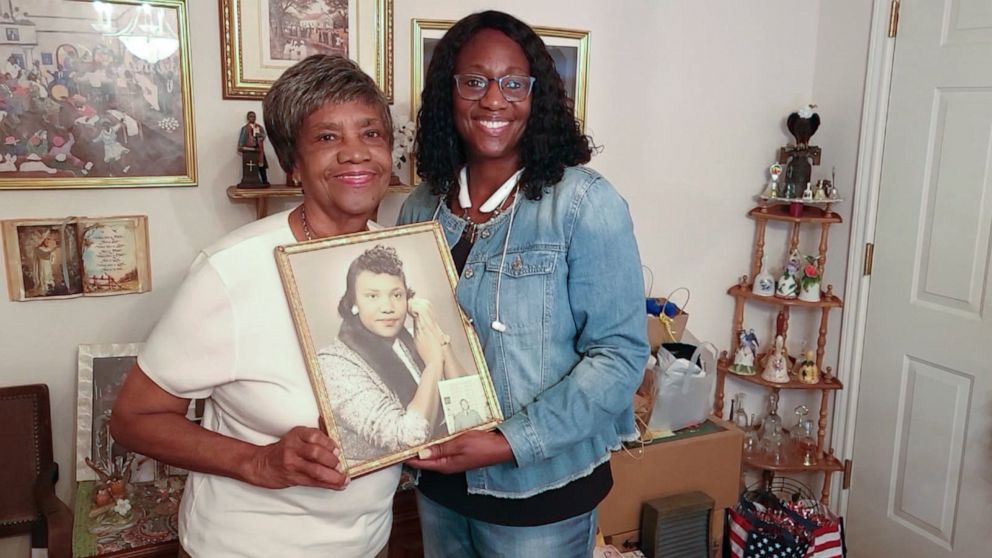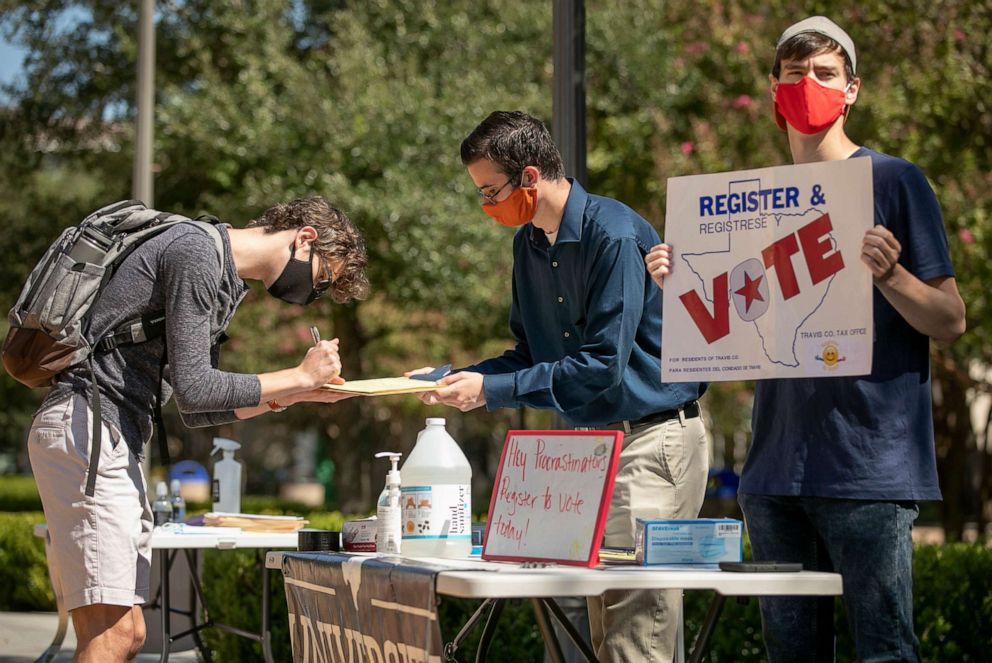Black woman in rural Texas struggles with process to vote, advocates say system is unfair
While voters across Texas submitted voter registration applications on Monday, Oct. 4, ahead of the Nov. 2 statewide election, 82-year-old Elmira Hicks worried she would not be able to have her vote counted.
The Oakwood, Texas, native said she hasn't been able to renew her driver’s license for more than a year because she has been unable to present the required birth certificate needed to verify her identity.
In the Lone Star State, election laws require voters to present a driver's license, passport, military identification card, citizenship certificate, state election identification certificate or a personal identification card to cast a ballot in person.
A person does not need an ID to register to vote, or to vote by mail in the state of Texas.
For voters ages 70 and over, an otherwise valid form of ID may be presented when casting a ballot, even if it’s expired, according to the office of the Texas Secretary of State.
If a voter does not possess or cannot reasonably obtain one of the seven acceptable forms of photo ID, the voter may file a Reasonable Impediment Declaration and present a supporting form of ID, such as a bank statement, current utility bill, paycheck or government check.

Hicks and her daughter, Jonita White, said they were unaware of the RID process, and that without a driver’s license and limited transportation, it's difficult for Hicks to participate in state and federal elections.
"My voice does not count.” Hicks told ABC News. ”It's very important. People have died just to vote, people have stood in line, in the rain, women fought to vote and now I can't vote."
Like many Black elders in the South, Hicks was born at a time when records weren't kept. She never had a birth certificate. Her daughter has helped her apply for one. The pair even went to court over the issue, and said a judge ruled in their favor. Still, they said the Office of Vital Statistics rejected Hicks because she filled out an outdated form, according to White.
"I do feel like the laws right now are targeting my mother and other African Americans in this country," White said.
Eight state constitutional amendments ranging from taxes to judicial eligibility will be up for a vote on Nov. 2, in an election that, as of now, Hicks will not be able to participate in.
Advocates warn that potentially thousands of predominantly minority voters could be disenfranchised due to voter identification requirements, which could have large implications during next year's midterm elections for state and congressional races.
"It's often very common for people of a certain age not to have a birth certificate. I want to emphasize it's not as uncommon as people might believe," said Franita Tolson, the vice dean for faculty and academic affairs and a professor of law at the University of Southern California Gould School of Law.
"In this country, race correlates to a lot of different characteristics. So, for example, if you take voter identification laws ... people of color, so African Americans, Latinos, will be less likely to have the underlying documents that you need in order to get the ID in the first place in order to get a driver's license," Tolson continued.
Texas recently passed the Election Integrity Protection Act, one of the most restrictive voting laws in the country. It bans drive-thru voting, enlists new regulations for early voting and enacts new ID requirements for mail-in voting.
While Tolson does not believe all voter identification requirements are discriminatory, she called Texas' voter ID measures "racist" during a Congressional Subcommittee hearing on Sept. 22 because she believes they disproportionately impact voters of color.
"Texas has a very restrictive voter ID law," Tolson said. "If you read it, it doesn't seem racist on its face, but if you think about how it operates in practice, as well as the intent behind it, it is fairly racist. For example, Texas' law only allows voters to have a certain limited amount of IDs. You have to have a driver's license, you can have a hand handgun license, you can have a military ID, but you can't have a federal ID, or you can't have a student ID, which are the types of IDs that people of color are more likely to have."

Rep. Steve Toth R-Texas, vehemently disagreed with Tolson's claim that the state's election laws are discriminatory, telling ABC News that the latest legislation makes it easier for people to vote and harder to commit fraud.
"We expanded the number of hours for people to vote, we expanded the number of days so people could vote. We added criminal penalties to people that want to shut voting locations down early or open late. We made sure that employers had to allow people to leave early to vote," Toth said, calling Tolson's charge offensive.
Nationally, there is bipartisan support for voter identification requirements among the majority of Americans, and 62% of Democrats support photo ID requirements, along with 87% of Independents and 91% of Republicans, according to a Monmouth poll..
Toth told ABC News that voters like Hicks have recourse.
"If they can't get a driver's license, go to DPS {Department of Public Safety], with a social security card, or some other ID, and to get an ID [election identification card] so that you can vote. It's free," Toth said, acknowledging that most people vote using their driver's license.
White said obtaining an election identification is not so easy for an 82-year-old woman who lives in a rural area without the convenient ability to drive herself to the Department of Public Safety.
"My challenge is it's taking so long to get this done," White said. "And to send my mother through all of these hoops at this age to go get documents notarized, to go get her Social Security application, We're having to look for high school records and baptism information ...To send her through such a process, it really is ridiculous."
Editor’s note: This article has been updated with additional information provided by the Texas Secretary of State’s office.



